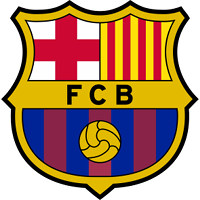Great Goals need to have context.
Can a goal be truly great if it doesn't matter, or if it comes against a weak opponent?
READ MORE: The Greatest Ever Premier League Goals - Ranked
Of course it can. Goals mean so much to different people, to fans of a team, for example, or where you were in your life when it was scored. But for a goal to be objectively great it needs to transcend the moment in which it was scored and permeate the popular culture, a instant where we, collectively, have our breath taken away.
Zinedine Zidane's volley did it. Gareth Bale's acrobatic wonder did it. And Thierry Henry's flick and volley against Man Utd most certainly did it too.
As we say, context. In 2000 Man United were the most dominant force in the Premier League since Liverpool of the mid-80s, steamrollering their way to titles in 2000 and 2001 following their treble triumph in 1999. They were, pound-for-pound, the best side in Europe with Real Madrid.
They had begun the 2000/01 season with four wins and three draws and were very much the side to beat. Thierry Henry, meanwhile, wasn't Thierry Henry yet, still the prototype version of the player Arsene Wenger was convinced he could become.
And while the 2000/01 season ends better for United than it does for Arsenal, not least after the 6-1 thumping at Old Trafford in the following February, this performance and result proved, at least, that they were fallible - as it would be proved the following year.
So from FootballCritic's criteria, Man United are of the highest standard, and Henry's goal is of historical importance. But what about the goal itself?
A player flicking the ball up never usually ends well, and it's why it is not often attempted. Once the ball leaves the ground, the propensity for a player to appear in blooper reels of the future with sound effects parped over the top of it increases exponentially. You've got to be supremely confident in your ability.
Henry had doubts about his ability to score goals for Arsenal; he openly told Wenger this before signing, who told him 'not to worry'. But after a promising first season and a tournament-winning Euros for France, he is still learning both back-to-goal strike play and off-the-shoulder running, and indeed, he hasn't scored in a month. It's beginning to become a problem.
Then, half an hour in, a turning point in all manner of ways. Collecting the ball into feet roughly 25 yards out, Denis Irwin is at his back. The Irishman doesn't really do anything wrong: he is tight, as he should be, with United deep enough that Henry doesn't have any space to run into. But Henry's touch isn't just in front of him, it's to the right of him. It's this element which means any suggestion that there's luck here dubious at best. He flicks it there because he's going to turn and hit it.
And hit it he does, shrugging Irwin off to throw his right leg around and aim very particularly for the far corner. What happens next is dream-like, as for a hazy, ethereal second the ball floats through the air. Fabian Barthez, France team-mate, seems so far away from saving it, that it can't be going anywhere near the target. The shot looks as if it's 60 feet wide, it has to be, because Barthez is nowhere near it, a dot on the horizon behind the parabola of this strike.
The ball drops in, the crowd reaction is a gasp, then a roar. Henry dashes towards the bench and the stolid demeanour of Wenger is smashed. He's clapping wildly, the bench are up, Henry is banging his head with his hand and it's all-round vintage 15 seconds of the Premier League.
If this isn't your greatest Premier League goal ever, we don't know what to tell you #Henry #PremierLeague https://t.co/U0w856mAJd
— FootballCritic (@CriticFootball_) April 13, 2020
It matters that's Henry that does this. It matters that he's one of the greatest players of all time. It all adds to the majesty of it.
'Genius' claimed the BBC, while the Guardian called it 'an outstanding piece of craftsmanship'. Even Sir Alex Ferguson was forced to shrug his shoulders at what he had seen.
"You can't do anything about a goal like that," he said. "I couldn't believe it."
Wenger said: "When you haven't been scoring goals, sometimes you need to try something a little bit crazy. Something you don't have to think about but just do it. Thierry played with much more freedom once he had scored."
You can say he played with much more freedom for the rest of his Arsenal career. In the immediate aftermath he scores winning goals against Aston Villa and Middlesbrough, while his two finishes in a 5-0 battering of Manchester City - the first a curling finish which would become his trademark, then an insouciant dink to finish the rout - showcase a sophistication developing in his style and the growing understanding that he's coming of age.
And all after a little dink and and an incredible goal. Truly, Henry the showman was born in this moment, against a formidable opponent. It will take a truly special event to beat this effort.

 Arsenal
Arsenal  Man Utd
Man Utd  Liverpool
Liverpool  Barcelona
Barcelona  Real Madrid
Real Madrid  Monaco
Monaco  Juventus
Juventus 




















